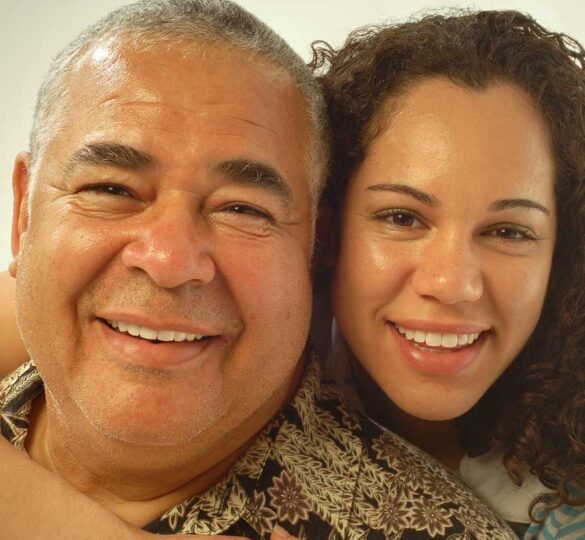Glaucoma Risk Increases in Families: Spread the Word
One way to reduce vision loss from glaucoma is to make sure your family members understand that they are at increased risk — if you have glaucoma.

Glaucoma is a worldwide problem that can lead to blindness. It is especially problematic because there are often no symptoms in its early stages. It is estimated that up to 50 percent of people with glaucoma don’t realize they have it.
Numerous population-based studies have demonstrated that one of the greatest risk factors for glaucoma is a family history of the disease. That means that one of the most important things you can do is to talk about glaucoma with your family and encourage them to take steps to preserve their vision.
When your family is visiting, or at family gatherings, talk about glaucoma and encourage your family members to have their eyes checked by getting a comprehensive eye exam — it can make a real difference.
Glaucoma may have no symptoms at first, but the earlier glaucoma is caught, the easier it is to treat. Encouraging family members to get checked is a way to make sure they don’t lose vision, because once they do, they can’t get it back.
The Importance of Heredity
Genetic studies have suggested that more than 50 percent of glaucoma is familial. It’s very strongly hereditary, especially among siblings; the rate of glaucoma can be 10 times higher among individuals with a sibling who has glaucoma. It’s likely that at least 15 percent of glaucoma patients have at least one sibling who has glaucoma, and that individual may be totally unaware of the disease. But remember — anyone who is a blood relative is at increased risk.
Make Sure Family Members Get Screened
When you share your health information with family members — letting them know you have glaucoma and that they may be at risk — you are potentially giving them the gift of sight, even if it feels like a burden to bring it up. Family gatherings are a good opportunity, not only to spread the word, but to get valuable family health history information when multiple family members are present and can contribute to the family knowledge.
Please join me and make a commitment to reaching out to your family members and encouraging them to get screened. I’m already working with a number of individuals and organizations to further this cause. If a significant portion of patients and eye-care professionals also make a commitment, we can have a major impact on reducing the number of individuals with undiagnosed glaucoma.
Article by Constance Okeke, MD, MSCE.
First posted on January 5, 2017; Last reviewed on February 28, 2022.

Dr. Okeke is an assistant professor of ophthalmology at Eastern Virginia Medical School in Norfolk, VA, and a glaucoma specialist and cataract surgeon at Virginia Eye Consultants.